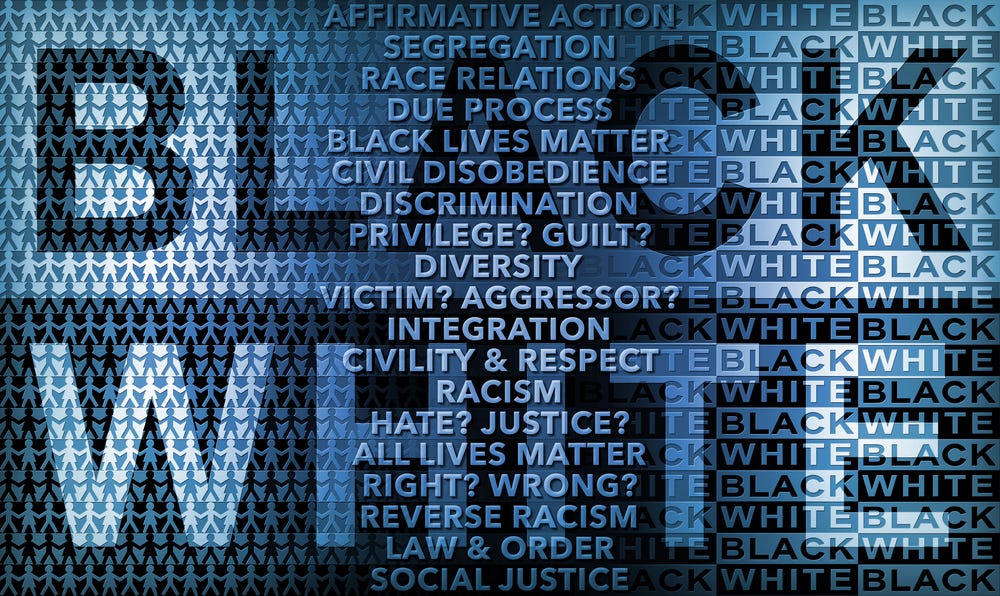E-Pluribus | April 10, 2023
Campus rat-out culture; the long arm of the CCP; and should we listen to the Dilbert guy?
A round-up of the latest and best writing and musings on the rise of illiberalism in the public discourse:
Iván Marinovic and John Ellis: DEI Meets East Germany: U.S. Universities Urge Students to Report One Another for ‘Bias’
If we teach children not to tattle, should we begin encouraging college students to do it? In the Wall Street Journal, Iván Marinovic and John Ellis write that Bias Reporting Systems on some campuses are doing just that.
According to a recent study by the free-speech watchdog organization Speech First, 56% of American universities have adopted schemes that encourage students to report on one another anonymously for “bias” or “protected identity harm.” This means that anyone who falls short of campus orthodoxy on “pronouns,” transgenderism, microaggressions and proscribed language might soon be denounced and deprived of basic due process, including the right to face an accuser. Zealots at Stanford recently denounced a fellow student who was photographed holding a copy of Hitler’s “Mein Kampf.”
The number of universities that have institutionalized snitching has doubled since 2017. The damage this will do to campus life is easy to imagine: It will chill free expression via self-censorship both in and out of the classroom; it will infantilize protected classes of students even more than they already have been; it will reinforce the campus culture of victimhood; it will further strengthen the radical orthodoxy; and it will divert yet more energy from learning to ideological activism.
Anonymous reporting has a self-selection component: Decent people won’t do it because they consider it morally repugnant. A system that rewards spying on friends and neighbors will disproportionately attract cowardly people motivated by the worst of human nature—resentment, jealousy, grudges and dogmatic intolerance. The snitches will be people who don’t understand the damage Stasi-like behavior will do to our universities.
Anonymous reporting will also contribute to the bureaucratic bloat of universities. Administrative staff will be needed to investigate and resolve the complaints, making a college education even costlier. By most estimates, the size of college administrations has doubled in the last 30 years, and tuition costs have risen at many times the rate of inflation. The solution is to reduce the number of administrative staff, not increase it further.
Read it all.
Joshua Kurlantzick: Beijing’s Campus Offensive
Many countries strive to increase their global influence, but those with totalitarian systems seeking to spread their ideology are clearly of greatest concern. At Quillette, Joshua Kurlantzick lays out how the Chinese Communist Party uses students abroad to tamp down criticism of the CCP many thousands of miles from Beijing.
In some cases, Chinese-supported campus groups have sought to control discussion about China, censor students and professors critical of Beijing, and lead protests on campus against invited speakers with links to Tibet, Taiwan, or organizations that oppose Chinese government policies (or even posters that highlight China’s rights abuses in places such as Xinjiang and Hong Kong). The Chinese President himself declared in a 2015 speech that control of these kinds of Chinese students associations overseas should be a priority.
A study by the Australian Strategic Policy Institute found that, in Australia and elsewhere, such students associations have surveilled Chinese nationals, organized “rallies and promotional events in coordination with the Chinese government,” and pressured students not to discuss topics sensitive to Beijing. Such concerns have been raised in Canada. And a study by the Washington-based Wilson Center came to similar conclusions about Chinese government influence at US universities.
This activity has had a chilling effect: Chinese students and even non-Chinese nationals at many universities increasingly censor themselves when speaking about topics related to China; and fewer universities invite speakers who comment on certain topics. According to researcher Isaac Stone Fish, even leading academics in the United States are becoming more cautious about any open criticism of the Chinese government. As Stone Fish notes, some of these effects are obvious, as when schools such as North Carolina State University cancel visits by the Dalai Lama. But often it happens in less overt ways, with Chinese national students being harassed and bullied on social media to censor themselves.
Read the whole thing.
Glenn Loury and John McWhorter: Taking Scott Adams Seriously
In their latest conversation, Glenn Loury and John McWhorter discuss the attitude reflected in Dilbert creator Scott Adam’s incendiary remarks about blacks and whites. Given that White Fragility author Robin DiAngelo recently echoed Adam’s sentiments from the other direction (“People of color need to get away from White people…”), it seems worth taking this urge for racial separation seriously to determine its roots and potential solutions.
When cartoonist Scott Adams’s comments urged white people to “get the hell away from black people,” he caught hell. His mega-popular strip Dilbert—a mainstay on comics pages for decades—was dropped by newspapers across the country. He was excoriated in the media. And, in the present political climate, one can see why. His remarks were crude and, for most commentators, easy to denounce.
I cannot endorse the idea that white people should, as a matter of course, intentionally segregate themselves from black people. And yet, I cannot dismiss the sentiment to which Adams was giving voice. Neither can John, as we discuss in this excerpt from our recent Substack subscriber-only Q&A session. Put aside the small number of white people who harbor real racial animus and simply don’t want to be around black people at all. There are plenty of well-meaning, unprejudiced—even, dare I say it, “woke”—white people who may prefer to live in racially, ethnically, and socioeconomically diverse urban neighborhoods but who nevertheless feel compelled by crime, bad schools, and other quality of life issues to move out to homogenous suburbs, where day-to-day life is, frankly, easier and more comfortable. Whatever discomfort they are willing to endure in order to enjoy the real benefits of diverse neighborhoods often comes up short when measured against the well-being and flourishing of their children.
Are these well-meaning, unprejudiced people actually racist for feeling compelled to move? Such a question fails to capture the complexity of the competing interests at play. On the one hand, a desire to experience and contribute to the often astonishing richness of American urban life, to further enrich and be enriched by that way of living. On the other hand, a desire to find safety and security for oneself and one’s family. I don’t think there is an objectively “right” decision between these two (admittedly caricatured) options. But it’s both incorrect and futile to insist that the real problem is that racist white people don’t want to be around black people. That may guilt white families into sticking around for a while longer than they would have. But ultimately, if they feel they have to leave, they’re going to leave. You can call them racist if you want to, but they won’t be around to hear you.
Read it all here.
Around Twitter
Note: Twitter’s feud with Substack is still preventing embedding of tweets.
Via Christopher Rufo, some eye-opening details on the University of Florida’s DEI bureaucracy. Click for the longer thread.
The Foundation for Individual Rights & Expression is urging San Francisco State University to check its priorities and worry less about those offended by pictures of Muhammed and worry more about… assault:
And finally, given his current suppression of Substack, Elon Musk (who is currently using “Harry Bōlz” as his display name for some reason) has a curious observation about censorship:









